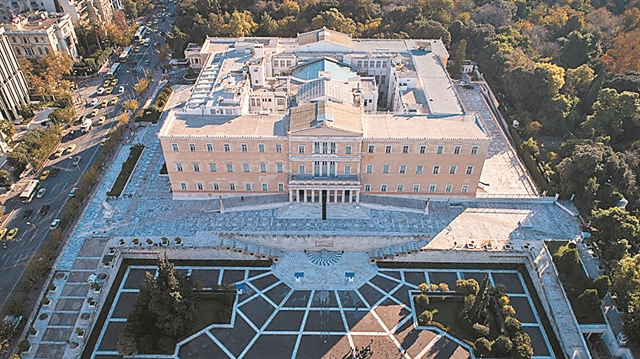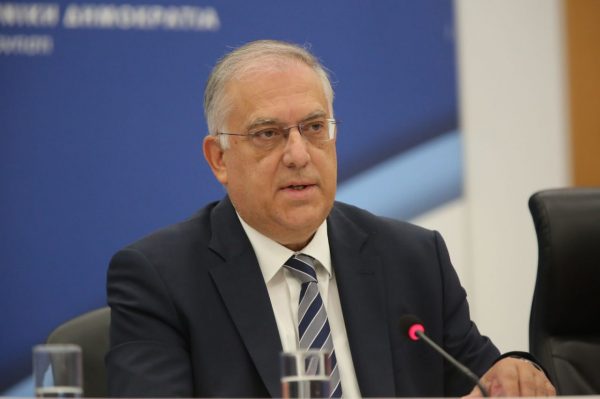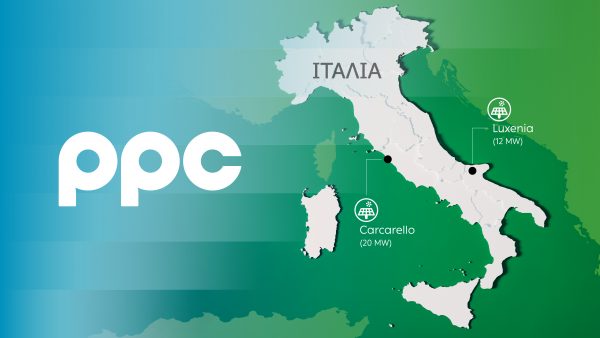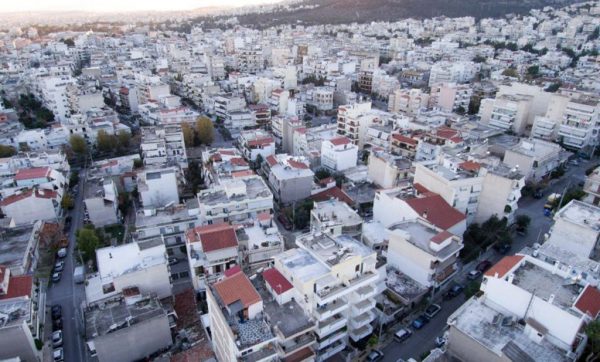
The completion of the energy upgrade of the Hellenic Parliament is moving along in an effort to fully adapt it to the demands of the times due to the climate and energy crisis. The project to upgrade the House energy-wise aims both at saving energy and reducing operating costs. The process has been complex due to the historicity and age of the building despite interventions and improvements made in the past.
As a project with secured funding for its tender since 2015, when it received pre-registration from the Managing Authority of the European program “Transport Infrastructure, Environment and Sustainable Development”, with the studies and tender documents updated in 2018-2019, the project was finally auctioned on 15/11/2019 with an international open electronic tender and with the criterion of the most favorable price. The total budget of the project amounts to €2,794,020 (including VAT) and its contractual expenditure amounted to €2,726,675 (the contract was signed on 15/4/2020 with a completion time of two years). Objectives include:
- The energy upgrade of the Hellenic Parliament building, by at least one energy category or a reduction in energy consumption by at least 30%, with a simultaneous reduction in annual carbon dioxide emissions, of the order of 39%. In the long run, significant cost savings will be achieved, while the reduction of CO2 emissions brings significant environmental benefits.
- Improving living conditions (heating/cooling) by creating a suitable working environment for employees and visitors to the building.
- The autonomy of the air conditioning in office spaces.
Operations
As part of the ambitious project, the removal of local and central air conditioning units, including those in the Prime Minister’s office and the Council of Ministers’ hall, is well along the way, while changes have also been made to the hot and cold water pipe networks as well as condensate drainage. Central air conditioning units have also been installed on the roof for the Parliament and Senate chambers, while the installation for the air conditioning of the offices and public gathering areas, central heat pump units as well as the installation of a Central Building Management System (BMS) is also progressing, which controls all air conditioning systems and is interconnected with existing electromechanical systems (external lighting management system – corridors, etc.). Also, new window frames have been installed in place of the old wooden ones, offering significantly improved energy efficiency, while external thermal insulation was added to the roof of the building.
Interventions/materials
Temperature regulating interventions were carried out in approximately 25,000 square meters (sq.m.) of the total 27,000 sq.m. of the Parliament Building.
About 15 kilometers of various gauge cables were installed.
Approximately three kilometers of insulated hot-cold water pipes of various gauge were installed.
The roof (roof) of Parliament was covered with 4,000 square meters of thermal insulation boards and 200 square meters of special insulation.
Three tons of aluminum were used to construct the air duct network.
Financing
The execution of the works was actually carried out during the pandemic, while due to the special architectural, historical and morphological importance of the building, as well as the use of all the spaces by employees and parliamentarians, the works were carried out in the afternoons, evenings, weekends and holidays. The sub-projects of the energy upgrade include the supply of electromechanical equipment for cold storage, the issuance of an Energy Performance certificate, the energy upgrade of the lighting inside the Palace with the supply and installation of new low-energy lighting fixtures, a sub-project that has been tendered and is being executed and expected to reduce the operating costs for lighting by almost half (by 45%) and improve the energy footprint by 6%, while the total energy savings, with the implementation of all energy interventions, will total 36%. Regarding the additional projects, the Parliament has secured financing from the Green Fund for interventions in the external lighting of the building with the simultaneous architectural highlighting of the Parliament Building and its surrounding area, as well as the Tomb of the Unknown Soldier.
Latest News

Capital Link Forum Highlights Greece’s Economic Resurgence; Honors BoG Gov Stournaras
Capital Link Hellenic Leadership Award recipient, Bank of Greece Gov. Yannis Stournaras, an ex-FinMin, was lauded for his pivotal role during Greece’s economic recovery

Tourist Spending in Greece Up by 14%, Visa Card Analysis Shows
Greece’s capital Athens emerged as the most popular destination, recording a 17% increase in transactions with Visa cards, surpassing even the cosmopolitan island of Mykonos.

Inflation in Greece Unchanged at 2.4% in Nov. 2024
The general consumer price index (CPI) posted a 0.4% decrease in November compared to the previous month

2024 Christmas Holidays: Extended Shop Hours Schedule
The 2024 Christmas Holidays extended shop hours schedule commences on Thursday, December 12 and runs until the end of the year.

ELSTAT: Seasonally Adjusted Unemployment Down in October
The number of employed individuals reached 4,284,694, an increase of 67,723 compared to October 2023 (+1.6%) and 22,002 compared to September 2024 (+0.5%).

Greek PM’s Chief Economic Adviser Resigns
In the post on his Facebook page, Patelis did not disclose the reasons that led him to step down.

“Masdar Invests in the people of Greece and in the vision of TERNA ENERGY”
Four messages from the CEO of Masdar, the Arab renewable energy giant, after its acquisition of 70% of TERNA ENERGY

Lloyd’s List Greek Shipping Awards 2024: Honors for leading companies and personalities in the Greek shipping sector
20 awards presented at the 21st annual Lloyd's List Greek Shipping Awards

Syria’s Bashar al-Assad, His family Granted Asylum by Russia
Reuters also reported that a deal has been struck to ensure the safety of Russian military bases in the war-ravaged country

Greece to Introduce Artificial Intelligence into Its Education System
Currently, Greece is taking its first steps to bring AI into classrooms through the AI4edu program, which is being co-funded by the European Union














![Χειμερινή εξοχική κατοικία: Οι Ελληνες γυρνούν την πλάτη παρά την πτώση των τιμών [γραφήματα]](https://www.ot.gr/wp-content/uploads/2024/12/Capture-19-90x90.jpg)




















![Αγροτικό πετρέλαιο: Πώς υπολογίζεται η επιστροφή του Ειδικού Φόρου Κατανάλωσης [πίνακες]](https://www.ot.gr/wp-content/uploads/2024/12/psekastika_1505-600x391.jpg)




 Αριθμός Πιστοποίησης Μ.Η.Τ.232433
Αριθμός Πιστοποίησης Μ.Η.Τ.232433